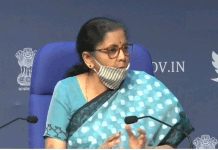The image of a vegetable market with its farm-fresh veggies and fruits have been glorified in those NCERT textbooks. A clean green market is what gets pictured often.
However, for Sharath Loganathan, an IIM-Kozhikode alumnus, a visit to the market was an eye-opener to the darker side of the over-hyped reality.

What shocked him was the amount of vegetables and fruits that were dumped and wasted on a regular basis.
He says:
When we went to the market, we discovered that the market was in total chaos. A lot of vegetables were dumped as waste, and people were walking over them. It was not only dirty but a surplus loss by every means.
To testify his concern, a report by FAO (a sub-unit of UNO), indicates the wastage of fruits and vegetables as high as 45 percent of the total production in India. And for India itself being an agro-country, such wastage proves to be simply expensive.
Inefficiencies could be seen in almost every aspect. There were a lot of middlemen involved, and there was no price transparency whatsoever.
We felt this is a market has the tremendous scope of development and is literally untapped.
And Ninjacart was then found to address this noble and minutely observed problem in our society. An online platform through which retailers and merchants can source fruits and vegetables directly from the farmers.

What Ninjacart has done is the successful cut off of middlemen, commission agents and auction agents present in the “mandis”.
This startup also provides an efficient price discovery platform to the farmers and vendors of fruits and vegetables by several innovative steps.
Though Ninjacart started its operation in May 2015 as a hyper-local grocery delivery company, after six months of operation, the other co-founders including Ashutosh Vikram and Sachin P Jose, felt that the backend supply chain of fruits and vegetables was broken and inefficient.
So, by December 2015, the company promoted the entire business model to become a full-fledged Business To Business (B2B) marketplace. On this Ashutosh says:
As of June 2016, we had a customer base of over 400 retail stores and restaurants in Bangalore. Our average monthly tonnage is about 1.4k tons and the monthly revenue of around Rs 4 crore.
Ninjacart also conducts regular seminars to educate domestic farmers on the market procedures and fair pricing of fruits and vegetables.

We educate the farmers about the exact market prices and how we bring transparency in the whole process. We also discuss good varieties of seeds and suggest best practices that a few farmers follow to get the good yield.
It is said the when demanded with accountability, establishments feel vulnerable. Similarly, when someone is determined to penetrate a market and bring a pioneering impact to it, others who are already established in the system become uncomfortable.
In case of Ninjacart, it is the age-old market mandi commission agents and local transport middlemen who regularly attempt at disturbing operations. The company often receives threatening phone calls to stop what they are doing.
But, that does not stop the team to keep doing the job they are doing so well.

The startup is rapidly expanding and in the coming months, Ninjacart plans to go pan Bangalore and then expand to Chennai and Hyderabad.
We all go to market. Almost daily. But it is the very vision and outlook to society that made Sharath different from the rest of us. Ninjacart’s story is an example to all entrepreneurs who strive to make a change and shows how it is done.
More power to the team!









